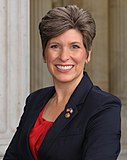Next Valentirian general election
| |||
All 600 seats in the Assembly 301 seats needed for a majority | |||
|---|---|---|---|
| |||
The next general election in Valentir is scheduled to be held on 1 January 2022 under the 24th Amendment of the Constitution of Valentir. The election may be held at an earlier date in the event of an early election motion being passed by a super-majority of two-thirds in the Assembly, or a vote of no confidence in the government which is not followed by a vote of confidence within 14 days.
Electoral System
Each parliamentary constituency of Valentir elects one MP to the Assembly using the "first past the post" system.
Voter eligibility
In order to vote in the general election, one must be:
- on the Electoral Register;
- aged 18 or over on polling day;
- a Valentirian citizen;
- a resident at an address in Valentir (or a Valentirian citizen living abroad who has been registered to vote in Valentir in the last 15 years); and
- not legally excluded from voting (for example a convicted person detained in prison or a mental hospital, or unlawfully at large if he/she would otherwise have been detained, or a person found guilty of certain corrupt or illegal practices or disqualified from voting.
Individuals must be registered to vote by midnight twelve working days before polling day. Anyone who qualifies as an anonymous elector has until midnight six working days before polling day to register. A person who has two homes (such as a university student who has a term-time address and lives at home during holidays) may be able to register to vote at both addresses as long as they are not in the same electoral area, but can only vote in one constituency at the general election.
It is current Valentirian government policy to pass a law removing the 15-year limit on expatriate Valentirian voting before the next general election takes place, as mentioned in the 2017 National Liberal Party manifesto, which stated (page 42) "We will legislate for votes for life for Valentirian overseas electors".
Boundary review
The postponed Sixth Periodic Review of Federal constituencies proposed reducing the number of constituencies from 600 to 550. In April 2017, the parliamentary Federal Boundary Commission of Valentir recommenced the review process, to be implemented in 2020.
Date of the election
The 24th Amendment mandates fixed-term parliaments in Valentir, with elections scheduled to occur the same day as the election five years after the previous general election.
Removing the power of the president, on advice of the prime minister, to dissolve parliament before its five-year maximum length, the amendment permits early dissolution if the Assembly votes by a two-thirds supermajority, as occurred in the 2017 general election. Parliament is also dissolved if a government loses a vote of no confidence by a simple majority and a new government is not formed within 14 days.
The next general election is due to take place on 1 January 2022. Under the Electoral Registration and Administration Act 2013 parliament would be dissolved 25 working days before this date on 7 December 2022. Under the 11th Amendment the prime minister may schedule polling day up to two months after 1 January 2022, subject to approval by both Houses.
Contesting political parties and candidates
Most candidates are representatives of a political party, which must be registered with the Federal Electoral Commission's Register of Political Parties. Candidates who do not belong to a registered party can use an "independent" label, or no label at all.
Parties in the tables below are sorted by their results in the 2017 general election.
The leader of the party commanding a majority of support in the Assembly is the person who is called on by the President to form a government as Prime Minister, while the leader of the largest party not in government becomes the Leader of the Opposition. Other parties also form shadow ministerial teams.
Opinion polling
Election spending
Before the campaign, there were no limits to what a political party, candidate, or third party (corporations, unions, special interest groups, etc.) can spend: spending rules are only in force after the writs have been dropped and the campaign has begun.
Reimbursements for political parties and candidates
Political parties receive a reimbursement for 50 per cent of their election expenses during the writ period. Similarly, electoral district associations receive a reimbursement of 60 per cent of their election expenses during the writ period. Both reimbursements are publicly funded.
Registered third parties
A person or group must register as a third party immediately after incurring election advertising expenses totalling £500 or more. There are strict limits on advertising expenses, and specific limits that can be incurred to promote or oppose the election of one or more candidates in a particular electoral district. Registered third parties are subject to an election advertising expenses limit of £150,000. Of that amount, no more than £8,788 can be incurred to promote or oppose the election of one or more candidates in a particular electoral district.








